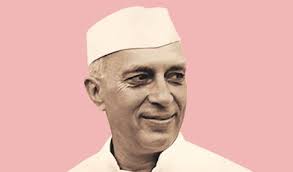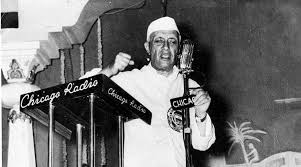Jawaharlal Nehru: A Visionary Leader who Shaped Modern India
Jawaharlal Nehru, the first Prime Minister of India, played a pivotal role in shaping the destiny of India as an independent nation. With his immense contribution and visionary leadership, Nehru laid the foundation of a democratic and socialist India. A revered statesman, diplomat, and author, Nehru’s legacy continues to inspire millions of Indians to thrive for progress, unity, and social justice.
Early Life and Education
Jawaharlal Nehru was born on November 14, 1889, in Allahabad, British India, into a prosperous Kashmiri Brahmin family. His father, Motilal Nehru, was a prominent lawyer and leader of the Indian National Congress. Nehru received his education in India, England, and later at Trinity College, Cambridge. Influenced by prominent socialists and nationalists during his time in England, Nehru developed a passion for India’s freedom struggle and embraced socialist ideals.
Role in the Independence Movement
Nehru’s political journey began when he joined the Indian National Congress in 1919. He quickly emerged as a charismatic and influential leader, admired for his eloquence, intellect, and modern thinking. Nehru played a crucial role in various independence movements, actively participating in the non-cooperation movement, civil disobedience movement, and the Quit India movement. His political acumen and eloquent speeches resonated with people across India, turning him into a national icon.
Leadership as the Prime Minister
After India gained independence from British rule on August 15, 1947, Jawaharlal Nehru became the first Prime Minister of an independent India. His vision and leadership were instrumental in shaping the country’s political, economic, and social landscape. Nehru implemented a progressive and inclusive agenda, focusing on nation-building and socio-economic reforms.
Nehru’s vision for India
Nehru envisioned an India that was strong, secular, and built on the principles of liberty, equality, and fraternity. He emphasized the need for economic self-sufficiency and implemented policies to achieve rapid industrialization through the establishment of public sector industries such as steel plants, hydro-electric projects, and dams. Nehru’s Five-Year Plans laid the foundation for India’s economic development, prioritizing education, healthcare, and infrastructure.
Pioneering Education and Science
Nehru firmly believed that education was the key to empowering the masses and building a progressive India. He championed the cause of universal education, emphasizing the importance of scientific temperament and innovation. Nehru established premier educational institutions like the Indian Institutes of Technology (IITs) and the Indian Institutes of Management (IIMs). He also laid the foundation of the Department of Atomic Energy, recognizing the pivotal role of science and technology in India’s growth.
International Statesman and Non-Aligned Movement
Nehru held a prominent role on the global stage and championed the cause of decolonization and peace. He forged strong relationships with other world leaders and played a significant role in non-aligned movement. Nehru advocated for peaceful coexistence and disarmament, striving to create a world free from the threat of nuclear war. His leadership and diplomatic skills helped India maintain a neutral position during the tumultuous Cold War era.
Legacy and Vision for a Modern India:
Jawaharlal Nehru’s legacy remains deeply ingrained in the fabric of modern India. His vision for the country, rooted in democracy, secularism, and social justice, continues to guide national progress. Nehru’s focus on education, science, and economic growth laid the foundation for India’s emergence as a global player, fueling innovation and technological advancements.
Criticism and Controversies
While Nehru is widely respected for his significant contributions to India, his legacy is not without controversy. Some criticism revolves around his approach to socialism, economic policies, and unresolved border disputes. Additionally, his trust in centralized planning drew criticism for its alleged pitfalls. However, the impact of Nehru’s contributions in shaping modern India cannot be overlooked.
Conclusion
Jawaharlal Nehru, the first Prime Minister of India, was a visionary leader whose contributions shaped the nation’s destiny. His eloquence, progressive thinking, and dedication to social justice laid the foundations for a democratic and socialist India. Nehru’s commitment to education, scientific temperament, and foreign policy neutrality secured a prominent place for India on the global stage. Despite the controversies surrounding his legacy, Nehru’s impact on Indian society, politics, and governance will forever be remembered. Today, as India continues to prosper and evolve, Nehru’s ideals of unity, progress, and inclusivity continue to inspire the nation’s collective conscience.





